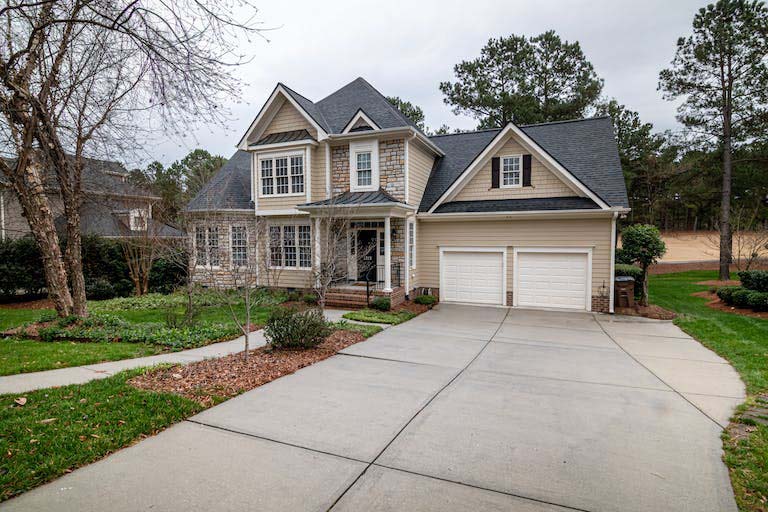First-Time Home Buyers Guide
In this first-time home buyers guide, we will show the benefits of going from being a renter to a homeowner. The first-time homebuyers guide will cover the steps of the homebuying and mortgage process. We will discuss most first and include how to choose the best mortgage loan program with the best rate, how much you can afford versus qualify, and other frequently asked questions.
By the time you are finished reading our first-time home buyers guide, you will have an understanding of the overall home buying and mortgage process. The home buying experience should not be a stressful one. It should be an exciting once-in-a-lifetime great experience. You will learn the steps of the homebuying process in this article on first-time home buyers guide.
First-Time Home Buyers Guide: Understanding The Mortgage Process
We will explain in the first-time home buyers guide why the mortgage process is stressful. The mortgage process does not need to be stressful. There is no reason why any borrower should get a last-minute mortgage loan denial. The number one reason for last minute mortgage loan denials is the loan officer issuing pre-approval letter without properly qualifying the borrower. Buying a house may seem like a painful process.
A home can be the purchase of your most expensive purchase and investment in your life. However, as long as you know the basic steps of the mortgage process and know what to expect, it should not be stressful. This is why it is so important for homebuyers to understand the steps of the homebuying and mortgage process. But even during a pandemic, the keys to the house of dreams can be yours with careful research and determination. And buying your first house can feel simultaneously exciting and overwhelming.
Click here to learn more about First-Time Home Buyers Guide.
The Importance of Your Credit Score
First-time home buyers guide to homeownership is realizing the importance of your credit scores. Your credit score is key. Credit scores is what determine your eligibility requirements and the pricing on mortgage rates. While preparing to buy your first home, it is essential to manage your credit wisely. Your credit score tells lenders how much risk it will be. He lowers your interest rate, and the more home you can pay comfortably. You will not need a perfect loan to buy a house. Some mortgage programs require only a score of 580. But many lend will want to see a credit score of 620 or more. And credit scores greater than 740 will give you the best terms and loan rates.
How Much Down Payment Do You Need To Buy a House?
You do not need a 20% down payment to purchase a house. Contrary to popular belief, an initial payment of 20% is not necessary to buy a house, and most people leave much less. Since 2018, the typical initial amount of housing buyers for the first time has oscillated between 6 and 7 percent. And there are even initial payment options for buyers for the first time, starting at 3% or even zero down.
Loans backed by the Government as it goes, FHA, VA, and USDA loans require between 0-3.5% decline. Therefore, do not postpone the purchase plans of your home, thinking that you need to save 20% or invest all your savings in the initial payment. Explore all your mortgage options. Speak with a loan officer about whether a zero or low-payment loan makes sense for you.
How Much Are Closing Costs on a Home Purchase?
It is important to remember that your initial payment is not the only initial cost when buying a house. You can negotiate your rates to be covered by the seller, and you must also save money for closing costs. Average closing costs vary from 3% to 5% of the loan amount. That means a $ 250,000 house with a 3% decline must save approximately $ 7,200 to $ 12,100 per closing cost.
The exact amount that pays in the rates will depend on a series of factors, including the property’s value, the size of its loan, and the requirements of its status and municipality. Some of the typical costs associated with the purchase of housing include tariffs from third-party lenders, rates, and prepaid items. Click here to learn more about closing costs on a home purchase
Here are some of the typical closing costs on a home purchase transaction:
-
- Title Costs
- Appraisal
- Prepaids
- Transfer Stamps
- Discount Points
- Mortgage Loan Origination Fees
- Credit Reporting Fees
Understanding Prepaids
The “Prepaids” is when the lender requires an escrow account for homeowners insurance and property taxes. The purpose of prepaids is so the mortgage lender makes sure homeowners insurance premiums and property taxes on the subject property get paid. Lenders often require between 6 and 12 months of taxes and insurance when you buy a house.
It is crucial to budget all your housing costs. When budgeting for a house’s payment, knowing the actual costs of having your new home is essential. Its total monthly price will include more than the mortgage loan’s main interest. It also includes monthly installments for property taxes and housing owners, as well as HOA installments if you buy within an association of owners.
How Much House Can I Afford?
The key when thinking about a home purchase is how much house you can afford versus how much you qualify. Mortgage Underwriters will not take your personal expenses, utilities, child care, or other fixed recurring monthly costs you have. Figure out what amount towards your housing expenses you can actually afford versus what you can qualify. You do not want to be house rich where you will not be able to continue on living the way you have been.
An excellent first step is using a mortgage calculator with taxes and insurance to estimate your monthly payment. The ongoing cost of home maintenance. It could include furniture and decoration, grass care, maintenance of appliances, renovations, and maintaining an emergency fund in case unexpected repairs arise after moving. Finally, do not forget to consider the costs of public services such as electricity, gas, water, and sewerage.
Get pre-approved in just 5 minutes!
Getting Pre-Approved
Requesting a mortgage may be less attractive than touring houses. But being wholly approved before house hunting is vital. Obtaining pre-approved makes buying a house less stressful. The process before approval will confirm that its price and qualifications range are in line with lenders’ guidelines.
It will also provide invaluable information, such as its estimated interest rate and the payment of the mortgage, which will help with the budget and planning before purchasing your home. Most vendors also require preventive before making an offer on the house. Therefore, this step is beneficial for you and is often necessary when you start getting serious. Fortunately, the process before approval is typically simple. Sometimes, it should be done in just 24-48 hours. Complete an online application and provide income and assets documentation.
How To Choose and Hire Real Estate Agent
While some buyers can choose to buy a house without a realtor or real estate agent, it is not advisable, especially for their first housing purchase. An experienced buyer’s agent can help find houses that meet their needs and examine the neighborhoods and home tour programming. It will be fundamental in the price negotiations and preparing their purchase contract. Your agent will help you design the most competitive offer possible within your budget and terms. Ask for referrals from friends and associates from agents. You can then check their online reviews, meet them and decide if you fit well.
Shopping For The Best Rates and Terms on a Mortgage
It is crucial to shop for the best rates and terms. Not all mortgage lenders have the same rates and terms. Housing buyers must request loan estimates for the same type of multipurpose mortgage loan. Th to know which lender offers the best treatment. According to the Consumer Financial Protection Office (CFPB), obtaining contributions from more than one mortgage lender can save thousands of dollars during the useful life of your mortgage loan.
With the ability to rapidly online estimates from many lenders, this is an easy way to save rates paid to the lender to reduce their interest rate. Buying the speed can make sense if it makes money available and plans to stay at home for a long time. f you plan to keep the loan for a few years. Verify each of your loan estimates to see if the discount points are included in the listed rates, and you are sure to compare the offers with similar conditions.
How a Larger Down Payment Can Lower Monthly Mortgage Payment
A substantial deposit will give access to the best mortgage offers and cheaper mortgage rates. It is possible to find a mortgage with a deposit of only 3.5% to 5%. The larger the down payment you put down on a home purchase, the lower your monthly housing payment will be. Jumbo Loans and Non-QM loans require a 20% to 30% down payment. USDA and VA loans offer 100% financing with no down payment required. FHA loans require a 3.50% down payment for homebuyers with at least a 580 credit score. Homebuyers with credit scores lower than 580 FICO and down to 500 credit scores require a 10% down payment.
Click here to qualify for a mortgage loan
First-Time Home Buyers Guide: Frequently Asked Questions (FAQs)
- Who qualifies as first-time home buyers?
First-time home buyers have never owned a home or has not owned one within the past few years, depending on the specific eligibility criteria of various programs. - How am I eligible as a first-time home buyer?
Eligibility criteria can vary depending on location and specific programs. Still, generally, you must not have owned a home within the past few years and meet certain income limits. - What financial assistance is available for first-time home buyers?
First-time home buyers may have access to programs offering down payment assistance, grants, or low-interest loans. Government-backed loan programs like FHA loans and VA loans are also popular options. - What amount should I aim to save for a down payment as a first-time home buyer?
The amount you need for a down payment can vary, but saving at least 3-20% of the home’s purchase price is typically recommended. Some programs may offer assistance for down payments, reducing the amount you need to save. - What are the benefits of buying a home as a first-time buyer?
Benefits include building equity, potential tax deductions, stability, and the freedom to customize your living space. - What should I consider before buying my first home?
Factors to consider include your budget, desired location, plans, potential for home appreciation, and expenses associated with homeownership are expenses such as property taxes, insurance, and upkeep. - What steps can I take to enhance my likelihood of mortgage approval as a first-time buyer?
To improve your chances of mortgage approval, start with improving your credit score, save for a larger down payment, reduce debt, and ensure stable employment and income. - What is the process for buying a home as a first-time buyer?
Typically, the procedure includes obtaining mortgage pre-approval, selecting a real estate agent, house hunting, submitting offers, conducting a home inspection, obtaining financing, and completing the property purchase. - Are there any incentives or tax credits available for first-time home buyers?
Certain areas provide incentives or tax credits for individuals purchasing their first home, such as credits for mortgage interest payments or property tax deductions. It’s essential to research what’s available in your area. - What resources are available to help first-time home buyers navigate the process?
Resources include housing counseling agencies, online guides, real estate agents specializing in first-time buyers, and government programs to assist home buyers.
Here at Gustan Cho Associates, our Loan Officer can help first-time home buyers. Call us at (800) 900-8569 or text us for a faster response. You can also email us at alex@gustancho.com. We are available even during weekends and holidays!
The first-time home buyers guide was updated and published on February 13, 2024.







